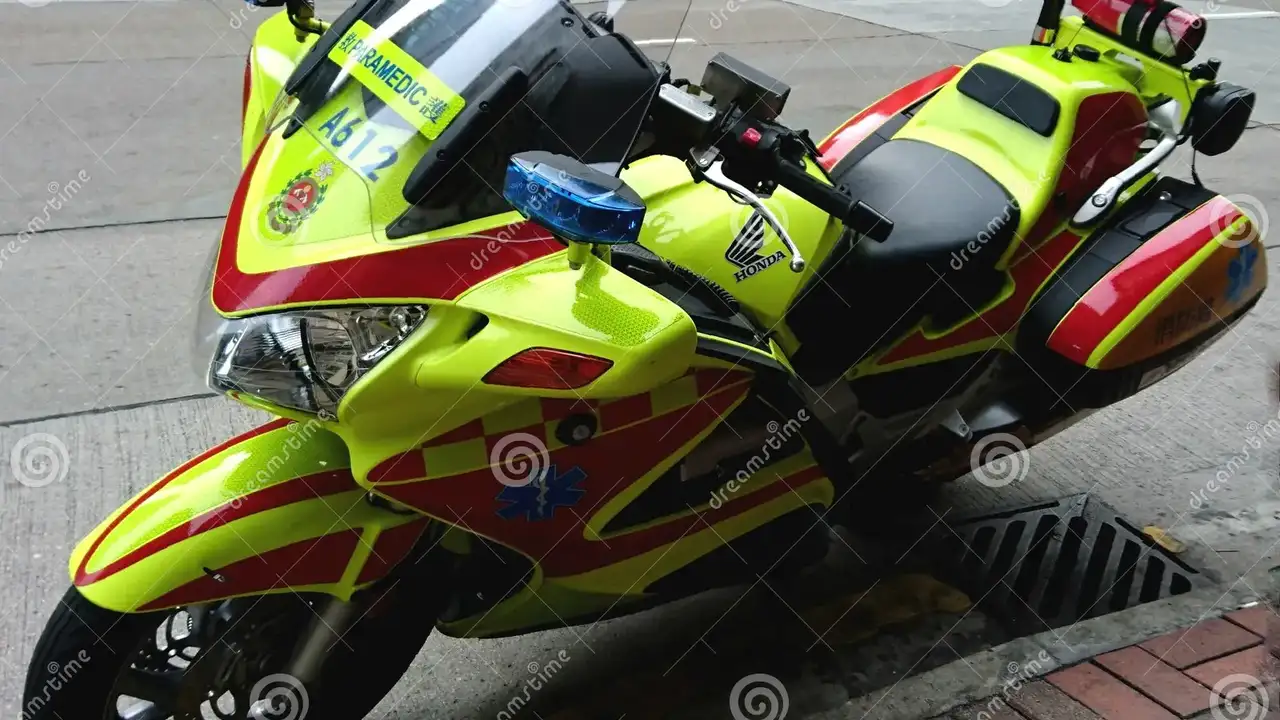Hong Kong's Emergency Services: What to Do in Case of an Emergency

Understanding Hong Kong's Emergency Numbers and Services
Okay, so you're in Hong Kong. Amazing! But let's be real, stuff happens. Knowing who to call in an emergency is crucial. In Hong Kong, the main emergency number is 999. Yep, just like in some other places. This number connects you to the police, fire department, and ambulance services. Think of it as your one-stop shop for getting help. Don't hesitate to call if you're facing a genuine emergency. Better safe than sorry, right?
Before you dial, take a deep breath and try to stay calm. The operator will need to know your location. Hong Kong is pretty densely populated, so giving specific details like street names, landmarks, or even the name of the building you're in is super helpful. Also, clearly state the nature of the emergency. Are you reporting a fire? Is someone injured? The more information you can provide, the faster help can arrive. If you're calling from a mobile phone, the operator might be able to pinpoint your location using GPS, but don't rely solely on that. Be as descriptive as possible. It's always useful to write down the address of your hotel or apartment when you check in.
Important Note: Don't call 999 for non-emergencies. That ties up the lines and could prevent someone with a real emergency from getting through. For non-urgent medical advice, you can call a local doctor or visit a clinic. We'll talk about those options later.
Navigating Hong Kong's Police Force and Reporting Crime
The Hong Kong Police Force is responsible for maintaining law and order. If you've been a victim of a crime, or if you witness a crime in progress, you should contact the police. As mentioned earlier, you can call 999 in an emergency. For non-emergency situations, you can visit a local police station. You can find a list of police stations and their contact details on the Hong Kong Police Force website. The website is available in English and Chinese.
When reporting a crime, be prepared to provide a detailed account of what happened. Include as much information as possible, such as the time, date, location, and descriptions of any suspects involved. If you have any evidence, such as photos or videos, be sure to share that with the police as well. You might also need to provide a written statement. The police will investigate the matter and take appropriate action.
Lost or Stolen Passport: This is a big one. If your passport is lost or stolen, you need to report it to the police immediately. Get a police report. You'll need this report to apply for a replacement passport at your country's consulate. Contact your consulate as soon as possible to start the process. They can provide guidance and assistance in obtaining a new passport or emergency travel documents.
Fire Safety and Emergency Evacuation Procedures in Hong Kong
Hong Kong has strict fire safety regulations, but it's still important to be aware of what to do in case of a fire. Familiarize yourself with the fire evacuation plan in your hotel or apartment building. Usually, this information is posted near the elevators or in your room. Know the location of the fire exits and fire extinguishers.
If you discover a fire, activate the nearest fire alarm and call 999. Provide the operator with the exact location of the fire. If the fire is small and contained, you might be able to extinguish it yourself using a fire extinguisher. However, if the fire is spreading rapidly, evacuate the building immediately. Close doors behind you as you leave to help contain the fire. Do not use elevators during a fire. Use the stairs instead. Once you're outside, move to a safe distance away from the building.
Fire Safety Tips: Avoid overloading electrical outlets. Don't leave cooking unattended. Be careful when using candles or open flames. If you're staying in a hotel, check that the smoke detectors are working properly.
Medical Emergencies and Healthcare Services for Tourists
If you experience a medical emergency in Hong Kong, call 999 for an ambulance. The ambulance will take you to the nearest public hospital. Public hospitals in Hong Kong provide a high standard of care, but they can be very busy, especially in the emergency room. Be prepared to wait.
For non-emergency medical needs, you can visit a private clinic or doctor. Private healthcare in Hong Kong is generally more expensive than public healthcare, but you'll usually receive faster and more personalized attention. Many private clinics and doctors accept international insurance. Check with your insurance provider to see if you're covered for medical expenses in Hong Kong. You can find a list of registered doctors and clinics on the Hong Kong Medical Council website.
Pharmacies: Pharmacies are readily available throughout Hong Kong. You can find them in shopping malls, residential areas, and tourist districts. Most pharmacies sell both prescription and over-the-counter medications. If you need a prescription, you'll need to see a doctor first. Many pharmacies have English-speaking staff who can assist you with your medication needs.
Essential Emergency Supplies and First Aid Kits for Travelers
Packing a basic first-aid kit is a smart move for any traveler, especially when visiting a new country. Here are some essentials to include:
- Band-aids: For minor cuts and scrapes.
- Antiseptic wipes: To clean wounds.
- Pain relievers: Such as ibuprofen or acetaminophen.
- Anti-diarrheal medication: Traveler's diarrhea is a common issue.
- Motion sickness medication: If you're prone to motion sickness.
- Allergy medication: If you have allergies.
- Sunscreen: Hong Kong can get very sunny.
- Insect repellent: Mosquitoes can be a nuisance.
- Hand sanitizer: To keep your hands clean.
- Any personal medications: Make sure you have enough for your trip.
Beyond the basics, consider these helpful products:
- LifeStraw Personal Water Filter: While Hong Kong's tap water is generally safe, having a LifeStraw gives you peace of mind, especially if you plan on hiking or exploring more remote areas. It removes bacteria and parasites from water sources. You can find it on Amazon for around $20.
- Anker PowerCore 10000 Portable Charger: Essential for keeping your phone charged, especially if you're using it for navigation, translation, or emergency calls. Anker is a reliable brand, and this charger is compact and efficient. Available on Amazon for about $25.
- Travelon Anti-Theft Classic Messenger Bag: Helps prevent pickpocketing with features like slash-resistant straps and locking compartments. A great option if you're carrying valuables. Prices range from $50-$80 depending on the size and features. Check Travelon's website or Amazon.
Staying Connected During an Emergency: Communication Tools and Apps
Having a reliable way to communicate is crucial in an emergency. Here are some options:
- Local SIM card: Getting a local SIM card is a cost-effective way to stay connected. You can purchase one at the airport or in many convenience stores. They usually offer prepaid plans with generous data allowances.
- International roaming: Check with your mobile carrier about international roaming options. This can be convenient, but it can also be expensive.
- Wi-Fi: Wi-Fi is widely available in Hong Kong, but it's not always reliable or secure. Be cautious when using public Wi-Fi networks.
Consider downloading these apps:
- WhatsApp: A popular messaging app that allows you to communicate with friends and family for free over Wi-Fi.
- Google Translate: Useful for translating languages, especially if you don't speak Cantonese.
- Maps.me: An offline maps app that can be helpful for navigation if you don't have access to the internet.
- Hong Kong Observatory: Provides real-time weather information and alerts.
Understanding Cultural Differences and Etiquette in Emergency Situations
While Hong Kong is a cosmopolitan city, it's helpful to be aware of some cultural differences and etiquette considerations. Generally, Hong Kongers are polite and helpful. However, they may be reserved in public. When asking for help, be polite and respectful. Speak clearly and avoid raising your voice. If you don't speak Cantonese, English is widely spoken, especially in tourist areas.
In an emergency situation, it's important to remain calm and respectful. Follow the instructions of emergency personnel. Avoid interfering with their work. If you're witnessing an emergency, offer assistance if you can, but don't put yourself in danger.
Specific Product Recommendations for Safety and Security
Beyond the general first-aid kit, here are some specific product recommendations:
- Personal Safety Alarm: A small, loud alarm that can deter attackers and attract attention. Easy to carry on a keychain. Prices range from $10-$20 on Amazon. Great for solo travelers or those walking alone at night.
- Door Stop Alarm: A wedge-shaped alarm that prevents doors from being opened and sounds an alarm if someone tries to force their way in. Useful for hotel rooms. Available on Amazon for around $15.
- RFID Blocking Wallet: Protects your credit cards and passport from electronic theft. Essential in crowded areas. Many stylish options are available on Amazon for $20-$30.
Comparing Travel Insurance Options for Coverage in Hong Kong
Travel insurance is essential for any trip, but it's especially important when traveling to a foreign country. It can cover medical expenses, trip cancellations, lost luggage, and other unexpected events. When choosing travel insurance, compare different policies and consider these factors:
- Medical coverage: Make sure the policy covers medical expenses in Hong Kong, including hospitalization, doctor's visits, and medication.
- Trip cancellation coverage: Covers you if you have to cancel your trip due to illness, injury, or other covered reasons.
- Lost luggage coverage: Reimburses you for lost or stolen luggage.
- Emergency evacuation coverage: Covers the cost of emergency evacuation in case of a medical emergency or natural disaster.
- Pre-existing conditions: Check if the policy covers pre-existing medical conditions.
Some popular travel insurance providers include:
- World Nomads: Offers comprehensive coverage and is popular with adventure travelers.
- Allianz Global Assistance: A well-known provider with a variety of policy options.
- Travel Guard: Offers customizable policies to fit your specific needs.
Always read the fine print and understand the terms and conditions of your policy before you travel.
Emergency Contacts and Resources for US Citizens in Hong Kong
The US Consulate General in Hong Kong can provide assistance to US citizens in emergency situations. They can help with lost or stolen passports, medical emergencies, and legal issues. The consulate's contact information is:
US Consulate General Hong Kong and Macau
26 Garden Road
Central, Hong Kong
Phone: (852) 2523-9011
Website: https://hk.usconsulate.gov/
It's a good idea to register your trip with the US Department of State's Smart Traveler Enrollment Program (STEP). This allows the consulate to contact you in case of an emergency.
Remember, staying informed and prepared is the best way to ensure a safe and enjoyable trip to Hong Kong. Be aware of your surroundings, take precautions, and know who to call if you need help. Happy travels!
:max_bytes(150000):strip_icc()/277019-baked-pork-chops-with-cream-of-mushroom-soup-DDMFS-beauty-4x3-BG-7505-5762b731cf30447d9cbbbbbf387beafa.jpg)






